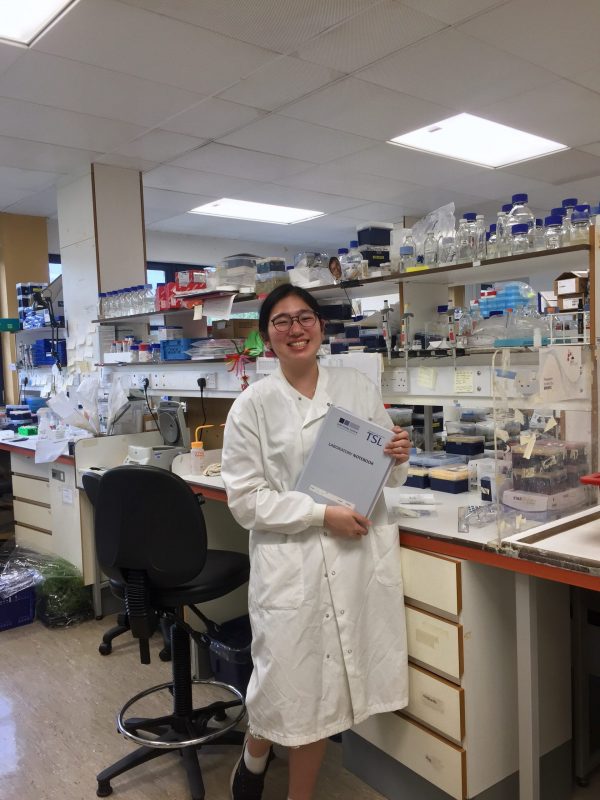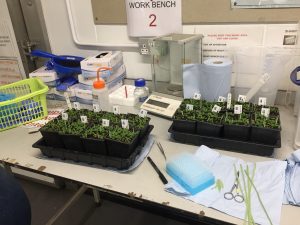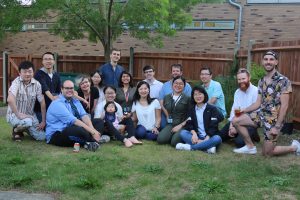
November 19, 2020, by Ruth Musson
Aileen Magilin, 3rd Year Biotechnology student Placement at the Feng lab, John Innes Centre
What are you studying?
I am now in my final year of the BSc Biotechnology with Industrial Year degree.  How was your placement arranged?
How was your placement arranged?
When I entered second year I made sure to get email alerts and kept an eye out on available placements advertised by the Careers and Placements team, Judith Wayte and Rachel Jessop.
During their Year in Industry spotlight session, I mentioned to Judith how I was interested in doing a placement in the John Innes Centre as it was a renowned institute for plant research. When their applications were open, I jumped straight into writing up my application, with the Careers team and Judith giving me advice on writing my CV and cover letter. A month later I went to meet the postgraduate director and one of their senior scientists for an interview.
What was your placement and what did it entail?
My placement was in Dr Xiaoqi Feng’s research group in the Cell and Developmental Biology department. Their research was focused on the epigenetic changes throughout the stages of pollen development. This was very intimidating for an undergraduate Biotechnology student!
For the research we grew plants with mutant proteins involved in the DNA demethylation pathway for sperm nuclei in pollen. When I started my placement, I was taught by a PhD student. I learnt how to clone genes, transform wild-type Arabidopsis plants, genotype them and also data analysis of sequencing results. It was a big learning curve but I got a lot of help and guidance from the members of the lab!

Feng Lab Members
What opportunities did it give you?
A wide range of opportunities to improve myself professionally and learn more about plant research. There were weekly departmental seminars where other researchers from the institute would present their research and discuss the implications of their work. Watching them present was an excellent learning experience, even though I did not have an advanced level of understanding about their work.
The Centre also provides workshops and introductory courses for their PhD students and postdoctoral researchers. I was able to attend introductory courses on bioinformatics, and can do some basic programming in Python, and statistical analysis with RStudio. I think this would really help with my final year project this year!
Tell us about the BBSRC Collaborative Workshop on Epigenetics
The Babraham Institute in Cambridge hosted the workshop. The Institute is known for world-class research on ageing, epigenetics, signalling and lymphocyte signalling. The Workshop was an opportunity for researchers all over the UK who studied epigenetics to present their current work. It was very intensive, but very interesting. I got to listen to presentations on topics such as reprogramming and intergenerational epigenetic transmission, RNA chromatin regulation, and the inheritance of DNA methylation and chromatin states.
For information on how you can benefit from working with industry as part of your degree see University of Nottingham placements or internships
No comments yet, fill out a comment to be the first

Leave a Reply